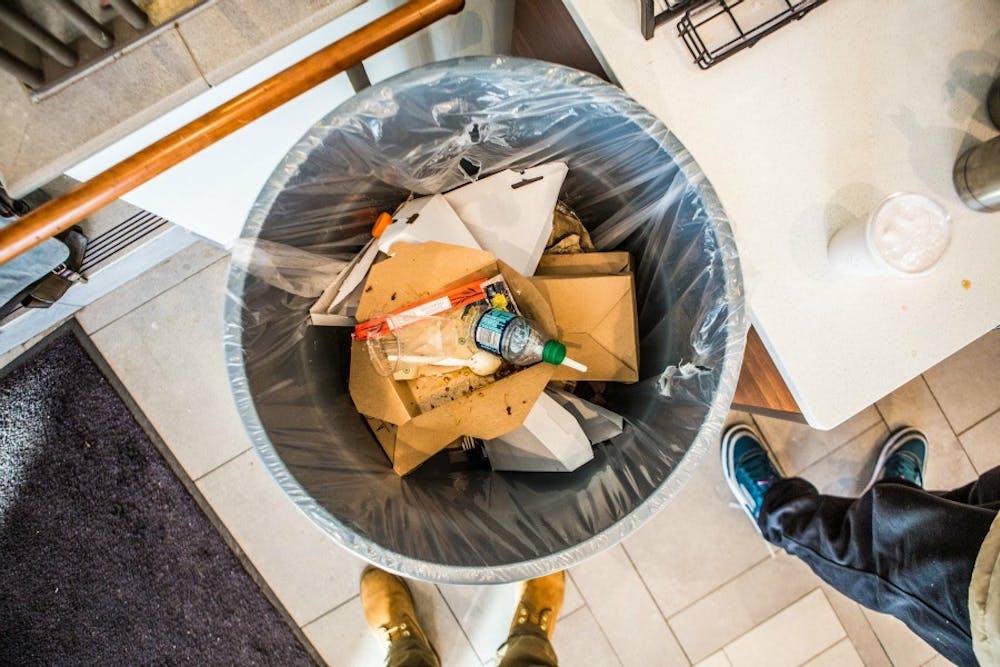By Hailey Mallendick, Senior Staff Writer
To help curb the food waste produced by campus dining halls at Miami University, a new program from the Associated Student Government (ASG) is underway.
The newly implemented bill, "Remaining Food Recovery Project," was unanimously passed by ASG last semester and will serve as a guide for the new dining hall food waste program.
Sophomore Morgan Nguyen, ASG academic senator, championed the new bill after learning of the food situation in dining halls.
"A Harris Dining Hall student manager told me in casual conversation that, after each meal, she throws away enough food to feed about 20 people," said Nguyen. "That statistic is what initially sparked my idea to implement a relocation program for remaining food."
Junior Ifeolu Claytor, who is ASG's secretary for diversity affairs, was another proponent of the bill.
"Employees prepare food almost until the time of closing. That was part of the impetus behind this bill," said Claytor. "Much of the food that is being disposed of may not even be two hours old."
Given the amount of food that was being wasted, Claytor and Nguyen thought it best to find a way to use the leftovers, while also benefiting the Miami community. Nguyen found her answer in the Pell Grant, a student aid program from the U.S. government that, according to The Century Foundation, 14.7 percent of Miami students receive.
Nguyen believes that students using the Pell Grant could also benefit from the leftover food in the dining halls - letting them dine on it for free rather than having it end up in the trash.
Junior Pell Grant, recipient Sydney Hanzlik thinks the program could be greatly beneficial for students that need it.
"It seems like a good idea," said Hanzlik. "I would potentially take advantage of it because it would theoretically cut down on my grocery bill."
Claytor also found that many students who live off campus ask underclassmen to "swipe" meals for them, sometimes because they can not afford food off campus. His goal is to help students like these.
"I wanted to do something for students who may need assistance with dining costs and may not have other avenues," said Claytor.
Senior Madalyn Wimmer supports a program that would help the feed lower-income Miamians.
"It's not something I personally feel the need to participate in, however, some of my friends have had harder times and could definitely use a program such as this," said Wimmer. "I don't think it's anything to be ashamed of if you need it."
While the main focus of the bill was on helping the Miami community, eliminating the food waste in dining halls was a bonus.
Harris Dining Hall is the pilot program for the Food Recovery Project.
"At the moment, we are in communication with dining services administrators finishing the logistics," said Claytor. "If the program does well, it may be expanded to other dining halls, but that is not in the works yet."
Once the program is fully implemented, the next step will be for ASG to find a way to deliver the leftover food of Harris dining hall to Miamians.
"The operation will be staffed by volunteers; we envision Greek chapters and club organizations volunteering their time to serve the Miami community," said Nguyen.
Much of ASG's planning for this program has come from schools, like the University of California, that solved a similar problem by donating their leftover dining hall foods to the community.
Claytor encourages students in the community to reach out if they would like to receive food from the program. "It is open to the Miami community, so anyone with a Miami ID may benefit from this program," said Claytor. "We wanted to offer assistance, but also ensure that there be no stigma attached for anyone who may need it."

